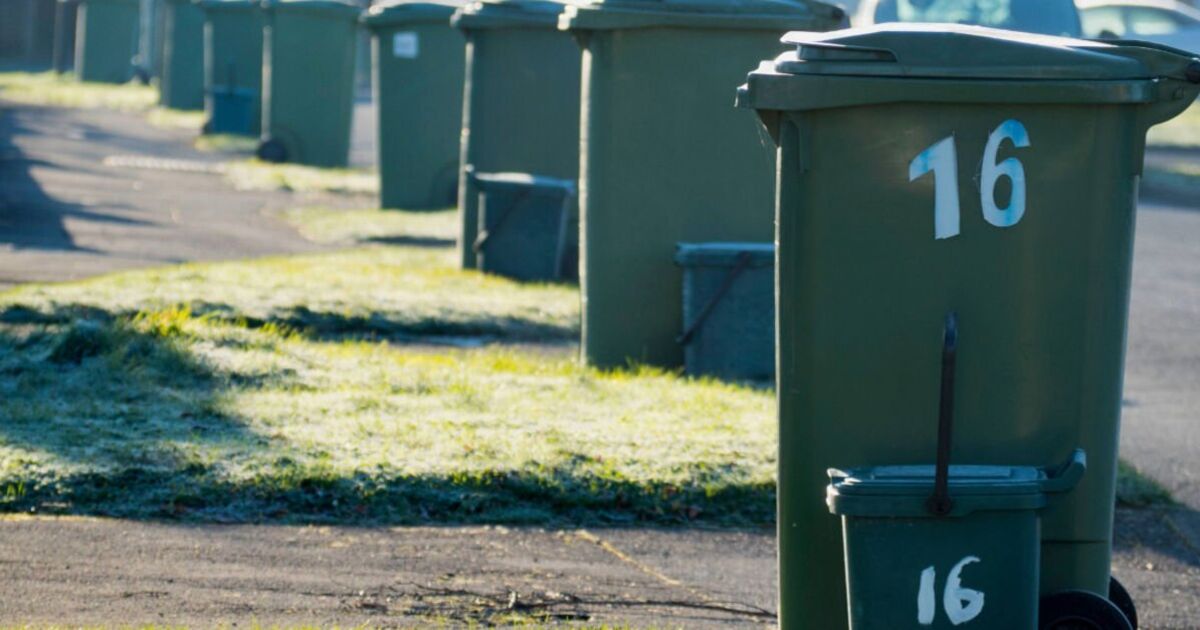
With over five million Britons expected to see their bin collections slashed to once a month by penny-pinching local councils, many households may struggle to find room for their refuse.
One expert has expressed concern that, in a desperate attempt to bin their rubbish, Brits may find themselves being hit with a £400 fine from their local council.
BusinessWaste.co.uk said it believed some homes may resort to “bin stuffing“, which means using a neighbour’s bin to contain their household waste.
Dropping litter in a neighbour’s bin is considered both an anti-social behaviour and possibly comes under the offence of fly-tipping.
Mark Hall, waste collection expert at BusinessWaste.co.uk, explained local authorities have discretion to issue fixed penalty notices for minor fly-tipping offences. Fines range from £150 to £400 but if you do not pay the fine and end up in court it could escalate to £1,000.
As well as fewer bin collections, households face a 5% increase in their council tax, according to Freedom of Information Requests by the Taxpayers’ Alliance.
It found one in ten local councils in Britain were considering reducing their services in some form.
The news follows a major backlash last week when Bristol Council announced a consultation into having black bin collections just once a month.
Alongside Bristol, two other councils – Carmarthenshire and East Ayrshire – are also considering cutting waste to once every four weeks. Four councils – North Ayrshire, Dundee, Angus, East Ayrshire – are looking at recycling only once a month.
While it may seem unlikely that such a minor offence could incur a fine, it has happened before, according to the waste collection firm.
What to do if you are a victim of bin stuffing
Hall advises moving any bins in places that are harder for people to access, but if the problem persists, it may be a good idea to speak to your neighbour first.
If that doesn’t work, then speak to your local council, and you may need to provide evidence.
Some local councils recommend having a locked bin
Hall said: “Handling waste properly is not just a matter of legal obligation; it’s also a significant component of living harmoniously in close quarters.
“Ensuring that each household takes responsibility for their own waste is key to maintaining not only cleanliness and order, but also a pleasant environment for everyone in the community.”
















